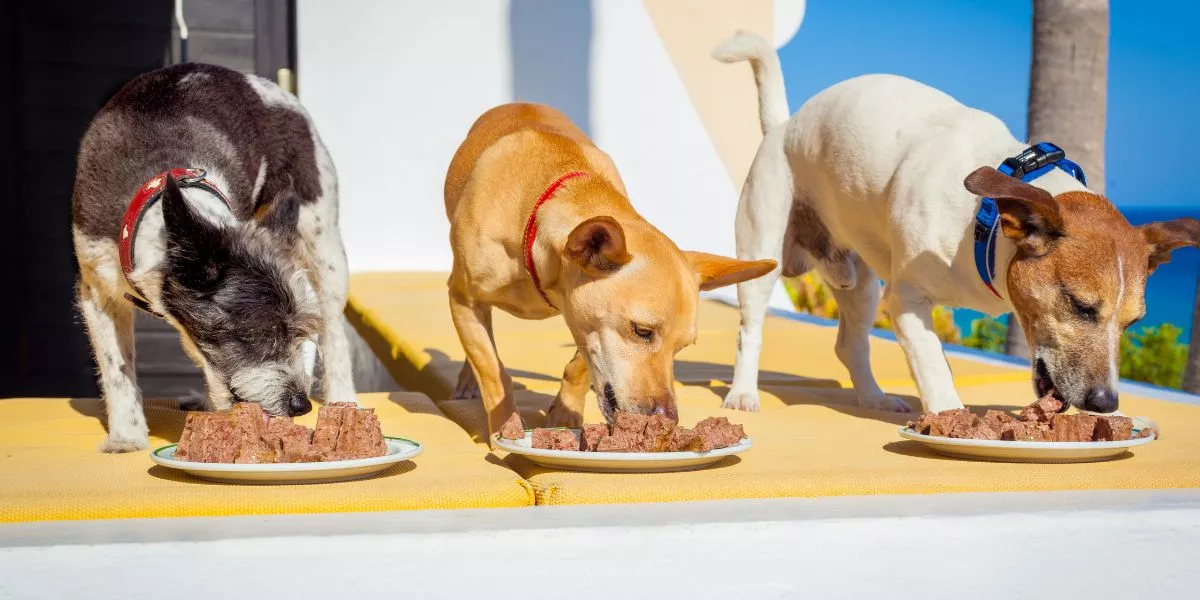
Determining the correct amount of food to feed your dog based on their size is pivotal for their health. Small, medium, and large dogs all have distinct nutritional requirements that must be met to ensure they thrive. But how do you accurately gauge the ideal portion sizes for your furry companion? Understanding these guidelines can be the key to promoting their overall well-being and longevity.
Size Categories for Feeding Guidelines
When determining your dog's feeding guidelines based on size, categorizing them into appropriate size categories is crucial for their nutritional needs. Small dogs, typically weighing up to 20 pounds, have different dietary requirements than medium or large dogs. These petite pups usually have higher metabolisms, meaning they may need more frequent meals throughout the day. Ensuring they receive the right balance of nutrients in smaller portions is key to their health and well-being.
On the other hand, medium-sized dogs, ranging from 21 to 50 pounds, fall in the middle ground. They require a diet that provides them with enough energy to keep up with their active lifestyles. It's important not to overfeed them, as this can lead to weight gain and related health issues. By dividing their meals into appropriate portions, you can help them maintain a healthy weight while meeting their nutritional needs.
Recommended Daily Food Intake for Small Dogs
Determining the recommended daily food intake for small dogs is essential for maintaining their health and well-being. Small breeds typically weigh between 2 to 22 pounds, and their calorie requirements can vary based on factors like age, activity level, and metabolism. As a general guideline, small dogs may need around 40 to 55 calories per pound of body weight per day. For example, a 10-pound small dog may require approximately 400 to 550 calories daily.
It's crucial to feed small dogs high-quality, nutrient-dense food specifically formulated for their size. Splitting their daily food portion into two or three meals can help prevent digestive issues and maintain energy levels throughout the day. Monitor your small dog's body condition and adjust their food intake accordingly to prevent obesity or undernourishment.
Always consult with your veterinarian to determine the precise daily food intake suitable for your small dog. By providing the right amount of food tailored to their size and needs, you can ensure your small furry companion stays healthy and happy.
Recommended Daily Food Intake for Medium Dogs
To ensure optimal health and well-being for your medium-sized dog, consider the recommended daily food intake based on their size and activity level. Medium dogs, weighing between 30 to 60 pounds, generally require around 1 1/2 to 2 1/2 cups of high-quality dog food per day, divided into two meals. However, this can vary depending on factors like age, metabolism, and energy levels. It's crucial to adjust the portion sizes according to your dog's individual needs to prevent overfeeding or underfeeding.
When determining the appropriate food intake for your medium dog, consider their activity level. More active dogs will likely require a slightly higher amount of food to sustain their energy levels, while less active dogs may need fewer calories to avoid weight gain. Monitoring your dog's body condition and adjusting their food intake accordingly is key to ensuring they maintain a healthy weight and overall well-being. Consulting with your veterinarian can also provide valuable insights into tailoring a specific feeding plan for your medium-sized canine companion.
Recommended Daily Food Intake for Large Dogs
For large dogs, weighing over 60 pounds, determining the appropriate daily food intake is crucial for maintaining their health and well-being. Large breed dogs have specific nutritional needs due to their size and energy requirements. On average, a large dog needs between 20-30 calories per pound to maintain a healthy weight. This means that a 70-pound dog would require around 1400-2100 calories per day, but individual needs can vary based on activity level, age, and overall health.
When selecting a dog food for your large breed companion, opt for a high-quality diet formulated specifically for large breeds. These diets often contain the right balance of nutrients to support their joint health and overall well-being. It's important to monitor your dog's body condition and adjust their food intake accordingly. Overfeeding can lead to obesity and related health issues, while underfeeding can result in nutritional deficiencies.




